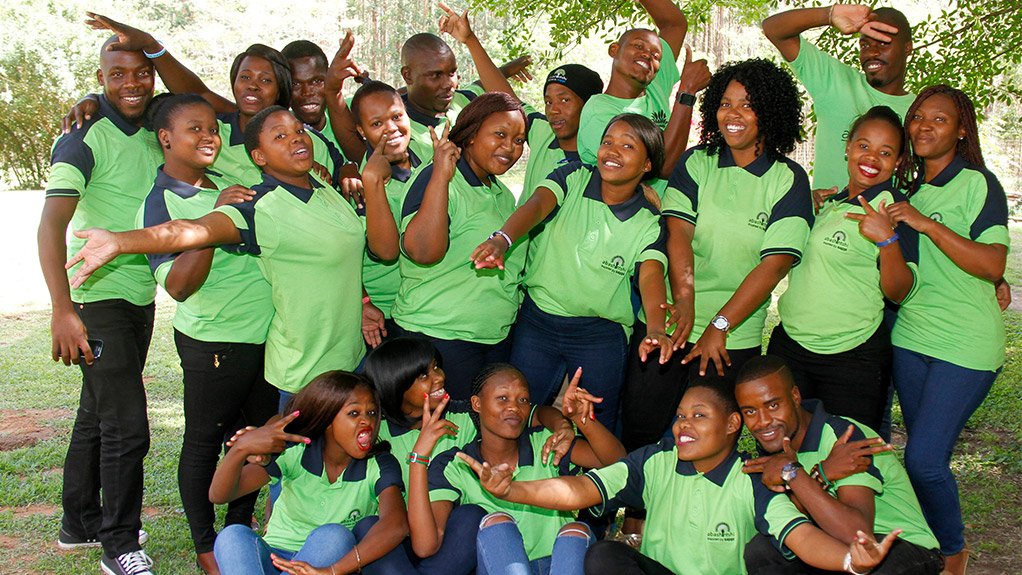With sustainable woodfibre products and solutions provider Sappi’s KwaZulu- Natal operations contributing about R11.7-billion a year to the province’s economy, the company is pursuing socioeconomic transformation in its communities of operation.
“We recognise that transformation is not just a moral imperative, but a pragmatic growth strategy that aims to realise the country’s full economic potential while helping to bring the black majority into the economic mainstream. Our focus, in terms of broad-based black economic empowerment, is to make a meaningful difference,” says Sappi Southern Africa CEO Alex Thiel.
In this vein, Sappi facilitates socioeconomic transformation using labour sourced from local communities, and the services of small and medium-sized enterprises (SMEs) situated in the areas around plantations and production facilities.
Thiel postulates that the biggest opportunities for this transformation lie in unlocking the forestry value chain by providing more access for more role-players – especially in the rural areas of the province – highlighting Sappi’s Khulisa programme as such an example.
Through Khulisa, Sappi supports the communities in the province with financial support and technical expertise to plant and grow trees to eventually sell them to Sappi. This development is dually beneficial, as it provides one of the only sources of income and jobs to the communities while securing valuable hardwood timber resources accessible to Sappi’s Saiccor mill, in KwaZulu-Natal.
“In addition to Sappi’s own plantations, we continue to identify ways of ensuring access to timber in the wood baskets close to our key operations by developing the knowledge and skills of timber farmers and service providers throughout the forestry value chain through mentorship and the transfer of skills.”
Small growers in the province are part of 4 000 people owning more than 33 000 ha who have harvested and delivered timber to Sappi. “Since 1995, more than three-million tonnes of timber to the value of R1.7-billion, have been bought from smaller growers under this programme,” extols Thiel. In addition, more than 200 SMEs have been established to support growers, creating more than 1 700 indirect rural jobs, as a result of Sappi’s Khulisa programme.
Thiel says the agriculture industry, including forestry, has been identified in the National Development Plan 2030 as a priority area for driving socioeconomic development.
However, the lack of skills and know-how as well as various regulatory and compliance challenges are holding this required development back in particular for land-reform beneficiaries, he comments. Against this backdrop, and at the request of land-reform beneficiaries, Sappi has provided technical assistance and training where required.
Besides this focus on providing skills and training for participants in the forestry value chain, Sappi has also identified a need to provide early childhood development (ECD) in communities adjacent to its operations. For this purpose, it has partnered with a nonprofit organisation called Training and Resources in Early Education (TREE) to train women across the province as ECD practitioners, informs Thiel. As from the end of 2016, this has expanded to 18 centre-based sites and 18 noncentre-based practitioners.
TREE has developed an inclusive education training programme which enables practitioners to effectively engage the youth. This accredited programme forms part of the National Qualifications Framework Level 4 qualification, which is equivalent to a Grade 12 or trade certificate.
Moreover, Sappi’s youth development programme, Abashintshi, meaning ‘The Changers’ in Zulu, is a social mobilisation programme implemented in conjunction with a development communications agency. This programme creates a channel for Sappi to communicate directly with the communities close to its operations, and through this, builds relationships, improves the company’s reputation, while at the same time training these youths in business and community development skills, applied through the asset-based community development model.
The Abashintshi programme was inaugurated in 2015 with 19 young volunteers. It currently boasts 116 active members operating in 65 communities who have reached over 18 500 people in their communities, with 419 business initiatives established or rejuvenated, and 790 community members deriving income from these.
Edited by: Zandile Mavuso
Creamer Media Senior Deputy Editor: Features
EMAIL THIS ARTICLE SAVE THIS ARTICLE
ARTICLE ENQUIRY
To subscribe email subscriptions@creamermedia.co.za or click here
To advertise email advertising@creamermedia.co.za or click here















